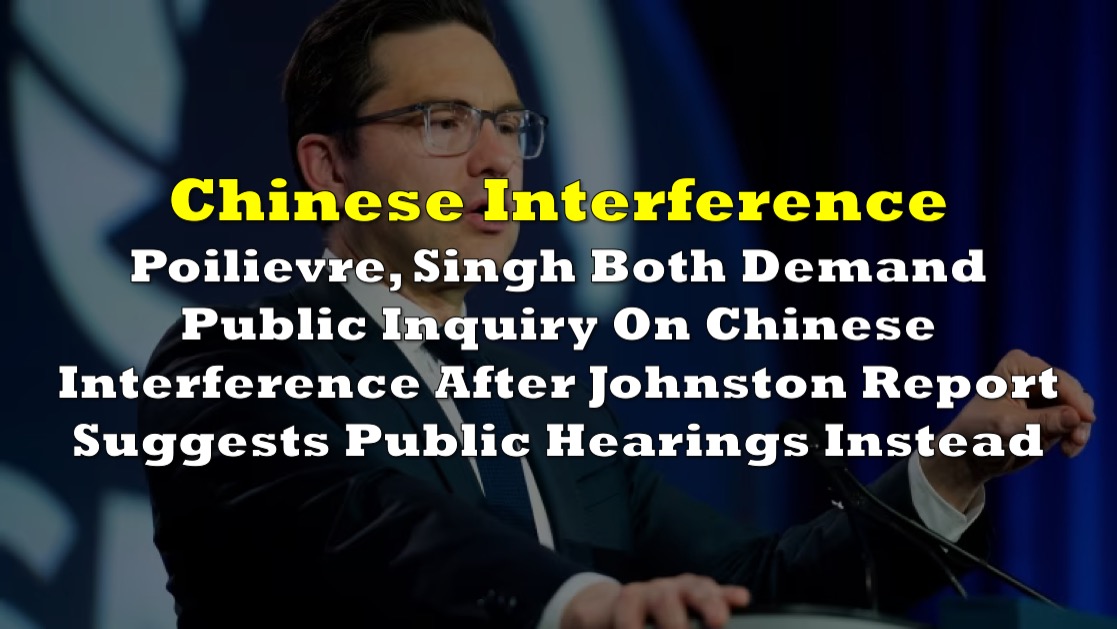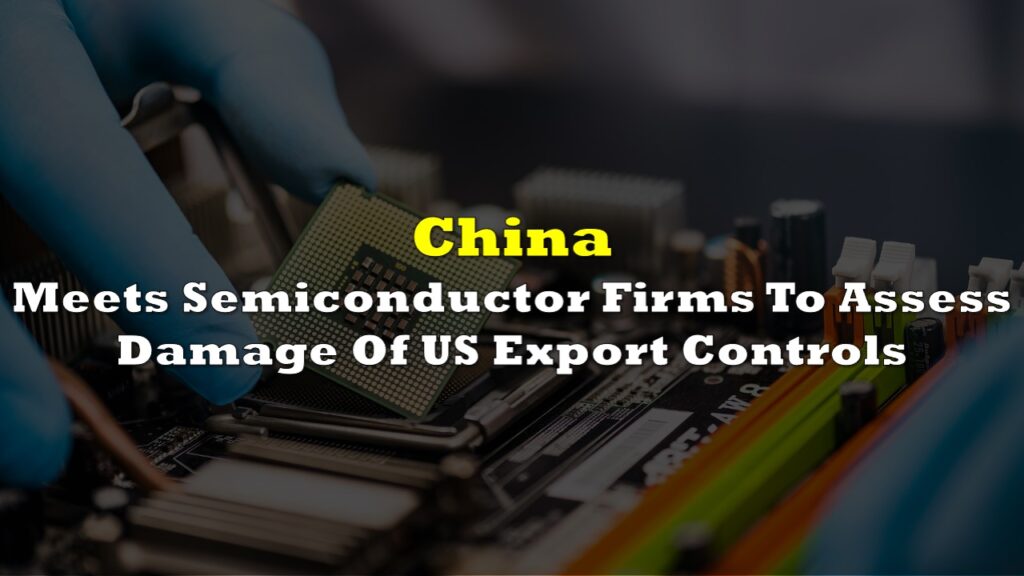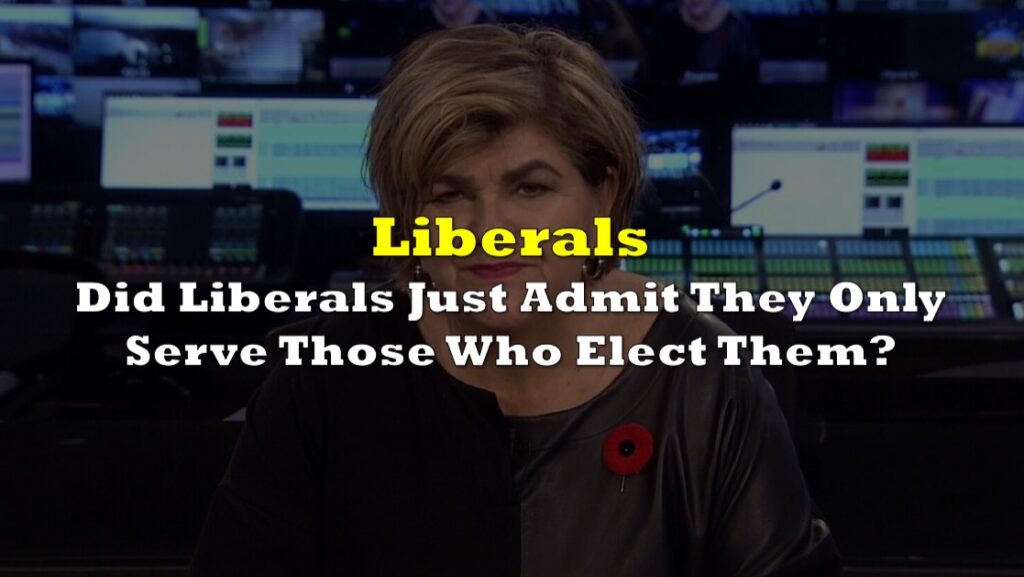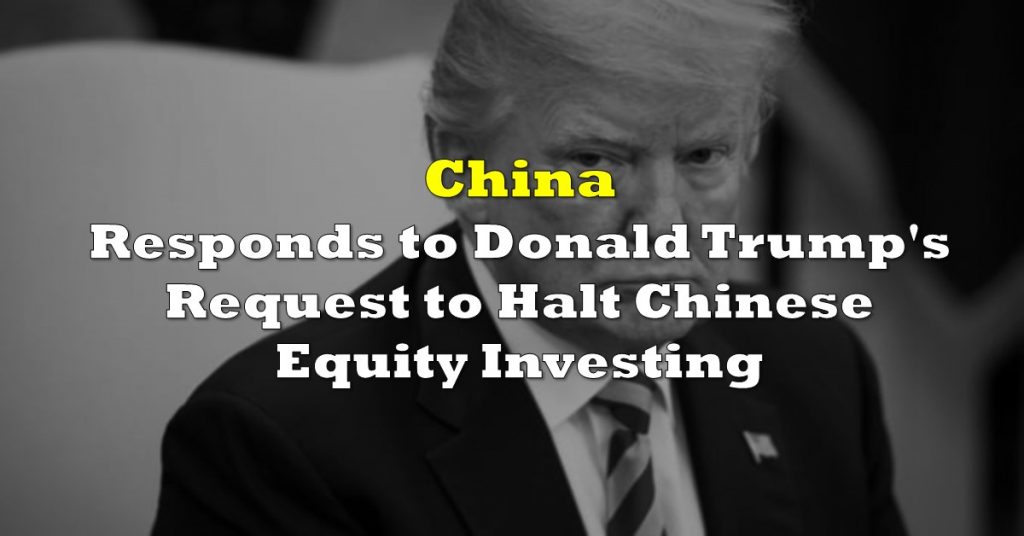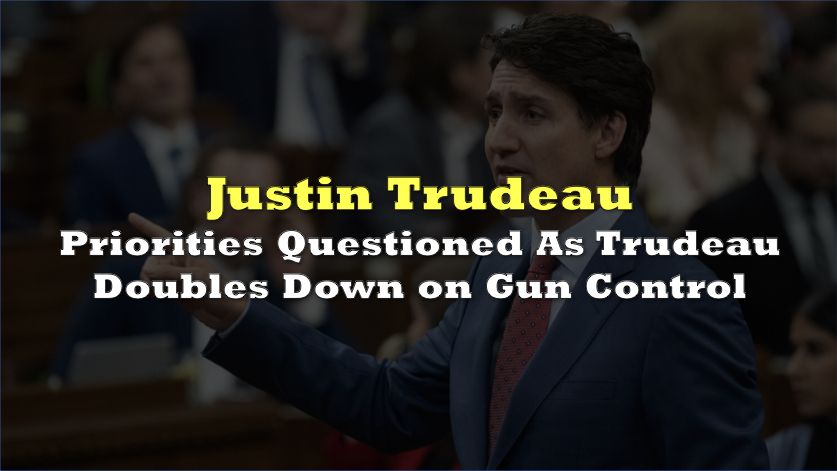The leaders of the Conservative Party and the New Democratic Party are both calling for public inquiry on Chinese interference in Canadian elections after Prime Minister Justin Trudeau’s appointed special rapporteur released a supposedly independent report saying there’s no need for such.
The Independent Special Rapporteur, David Johnston, released his first report on the alleged foreign interference during the national elections in 2019 and 2021. Johnston said a public process on the subject of foreign influence is essential, but not in the form of a public inquiry.
Instead, Johnston announced on Tuesday that he will organize “a series of public hearings with Canadians” to shed more light on the “problem of foreign interference” and teach the public and policymakers about the harm it poses, as well as solutions to resolve it as soon as possible.
After months of political scrutiny from an opposition united in their demand for an independent and open airing of the facts, Trudeau has come out in full support of Johnston’s decision to forego an inquiry, claiming that his government has handled the issue with the seriousness it deserves.
“The former Governor General determined that the next step in his work will be to hold public hearings. We fully support this work, including the intention to create a dialogue with Canadians, particularly in diaspora communities often targeted by interference,” the Prime Minister’s Office said in a statement.
Rather than asking the federal government to launch a public inquiry and designate someone to conduct it, the former governor general intends to carry out the task himself in the five months remaining on his term.
During these hearings, Johnston plans to speak with and hear from Canadians, particularly those in diaspora communities, as well as current and former government officials, knowledgeable experts, and “other interested parties” about foreign interference and ways to improve Canada’s response to it.
“This will be a public process, but not a public inquiry, as I do not need the subpoena powers provided by the Inquiries Act to gather this information and encourage public attention on these matters,” Johnston wrote in his report.
“Cover up continues”
The report did not sit well with Conservative Party Leader Pierre Poilievre, highlighting some questionable aspects of the report.
“David Johnston—from the Trudeau Foundation—wanted to make sure he wasn’t in a conflict of interest in judging the Beijing’s interference in the Trudeau Foundation. So he got an opinion from someone who is part of the Trudeau Foundation,” Poilievre tweeted.
The Leader of the Opposition was referencing to former Puisne Justice of the Supreme Court Frank lacobucci, who is listed as one of the foundation’s mentors and was one of the interviewees in Johnston’s report.
David Johnston—from the Trudeau Foundation—wanted to make sure he wasn’t in a conflict of interest in judging the Beijing’s interference in the Trudeau Foundation.
— Pierre Poilievre (@PierrePoilievre) May 23, 2023
So he got an opinion from someone who is part of the Trudeau Foundation. pic.twitter.com/55uCToFifz
Poilievre continues on and calls Johnston’s report a “cover up,” demanding a public inquiry on foreign interference.
BREAKING
— Pierre Poilievre (@PierrePoilievre) May 23, 2023
The cover up continues.
Call a public inquiry now. https://t.co/Bq8SOvYMso pic.twitter.com/YYb7S8buFS
“Beijing interfered in two elections to help Justin Trudeau win. Today, he’s covering it up with help from a family friend and Trudeau Foundation member. Conservatives will have none of it. We’re calling for a full public inquiry now,” he added.
Beijing interfered in two elections to help Justin Trudeau win.
— Pierre Poilievre (@PierrePoilievre) May 23, 2023
Today, he's covering it up with help from a family friend and Trudeau Foundation member.
Conservatives will have none of it. We're calling for a full public inquiry now: https://t.co/Bq8SOvYMso pic.twitter.com/zlYnmZay4t
Trudeau and his family friend are refusing to protect Canadians.
— Pierre Poilievre (@PierrePoilievre) May 23, 2023
We need:
-A full public inquiry into Beijing's foreign interference
-A foreign influence registry to bring home control of our democracyhttps://t.co/tJCivjm2PK
New Democratic Party leader Jagmeet Singh also called for a public inquiry, relaying his disappointment in the rapporteur’s report.
“Nothing short of an independent public inquiry on foreign interference is good enough… We’ll be taking these concerns directly to the PM and use all our tools in Parliament to get answers for Canadians,” he tweeted.
Nothing short of an independent public inquiry on foreign interference is good enough.
— Jagmeet Singh (@theJagmeetSingh) May 23, 2023
I'm deeply disappointed in the rapporteur's report.
We'll be taking these concerns directly to the PM and use all our tools in Parliament to get answers for Canadians.
A day before Johnston was scheduled to release his report, former Conservative Party leader Erin O’Toole blasted the way the report was conducted. He claims that Conservatives were the ones being targeted by the foreign election interference and yet the Party, his office, or Poilievre’s office weren’t called to be interviewed by Johnston until the last minute.
“He waited until the very end to meet with the current and former leaders of the Party that had been the central target of the foreign interference he was charged with investigating,” O’Toole wrote in his Substack. “If I am to believe media reports, Johnston interviewed the Bloc Quebecois leader about events alleged to have taken place in British Columbia and Ontario… before he finally got around to me or the present Conservative Leader. This makes no sense.”
The quandary of public inquiry
When Trudeau appointed Johnston, his “preliminary view” was that he was “very likely” to recommend a public investigation.
After assessing whether a public inquiry would boost public trust in Canada’s electoral process, Johnston stated that the sensitive material and information that would “lie at the heart” of whether the federal government did enough to combat charges of influence could not be made public.
While taking note of the worth public requests can and have had — highlighting the latest Public Order Emergency Commission focused on the “Freedom Convoy” — Johnston said, for this situation, it wouldn’t have the option to give the advantages of a full airing of current realities as others have.
“Instead, I would be handing off a problem to someone else, without solving it, or even providing a process by which the problem could be solved. This would prolong, but not enhance, the process,” Johnston said.
Throughout the course of recent months, a series of senior government security authorities have testified before parliamentary committees that while endeavors were made to interfere, the trustworthiness of Canada’s elections were maintained, while communicating the limits of what they’d have the option to say in an open forum.
Johnston expressed that because of these very much established and required public safety imperatives and secrecy oaths, any “credible” request wouldn’t have the option to be public by any means, calling what the leakers have done “wrong” and “damaging” to the certainty Canadians should have in those endowed with this data.
“This is a problem in that one can’t divulge everything that Canadians would like to know,” Johnston said.
Tuesday’s report from Johnston was not the end of his work. He was ordered to spend the months ahead proceeding to investigate the issue of foreign interference and the integrity of Canada’s democracy and report on his further discoveries.
Johnston said he desires to start the hearings “at the earliest possible date” and plans to give a subsequent report in view of what he hears, while taking on “a number of critical issues” up until October 31, 2023.
Information for this briefing was found via CTV News and the sources mentioned. The author has no securities or affiliations related to this organization. Not a recommendation to buy or sell. Always do additional research and consult a professional before purchasing a security. The author holds no licenses.

